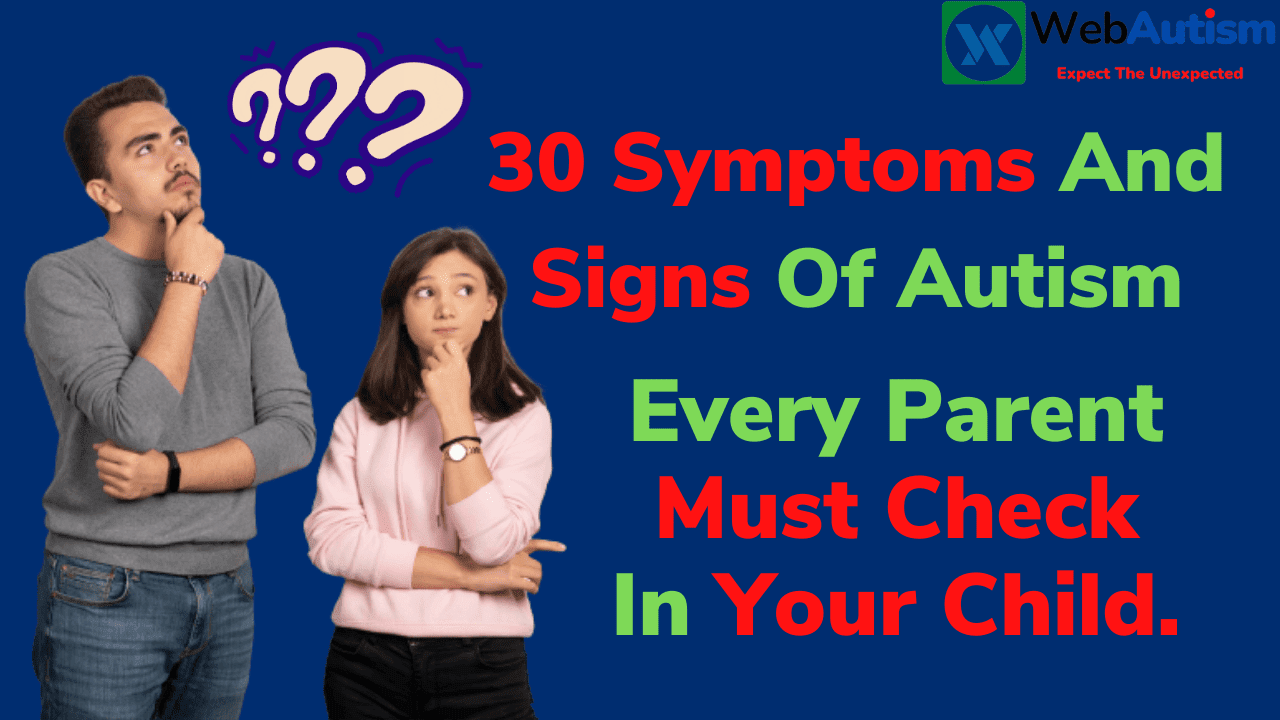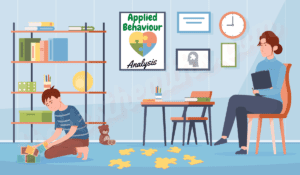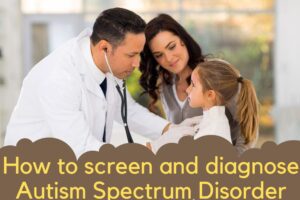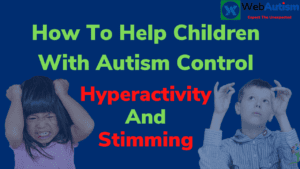So, in this article, you will know that what are the symptoms and signs of Autism. As most people knows that, Autism spectrum disorder (ASD) is a neurodevelopmental disorder affecting brain development. According to Diagnostic and Statistical Manual of Mental Disorders (DSM-5) Child with ASD usually have challenges with social communication and interaction, and restricted or repetitive behaviours or interests & other symptoms.
Autistic child may also have different ways of learning, moving, or focusing. According to Centre for Disease Control & Prevention (CDC) following challenges are observed in a child with ASD.
Social Communication and Interaction Skills
Social communication and interaction skills can be a problem for people with Autism spectrum disorder (ASD). It may include
- Lack in eye contact
- Not responding to name by 9 months of age
- Not showing facial expressions like happy, sad, angry, and surprised by 9 months of age
- Not playing simple interactive games by 12 months of age
- Not waving goodbye by 12 months of age
- Not sharing interests with others by 15 months of age (such as showing you an object that they like)
- Not pointing to show you something interesting by 18 months of age
- Not noticing when others are hurt or upset by 24 months of age
- Not noticingother children and join them in play by 36 months of age
- Not pretending to be something else, like a teacher or superhero, during play by 48 months of age
- Not singing, dancing, or acting for you by 60 months of age
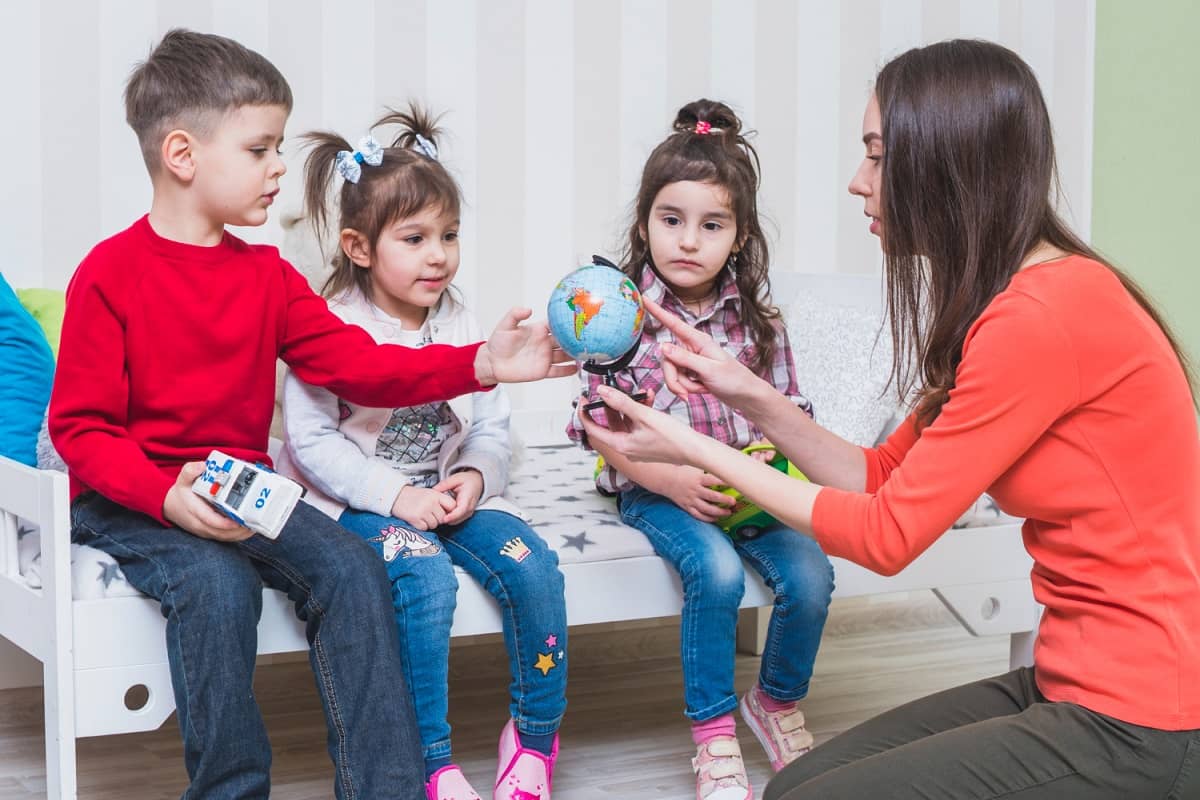
Restricted or Repetitive Behaviours or Interests
Children with ASD have behaviours or interests that are considered unusual.
Examples of restricted or repetitive behaviours and interests related to ASD may include
- Lines up toys or other objects and feels upset when sequence is changed
- Repeats words or phrases ( echolalia)
- Plays with toys the same manner every time
- Focuses on parts of objects (Like wheels)
- Feels upset by minor changes
- Shows obsessive interests
- Follows certain routines
- Hands flapping, rocks body, or spins self in circles
- Has unusual response to the way things sound, smell, taste, look, or feel
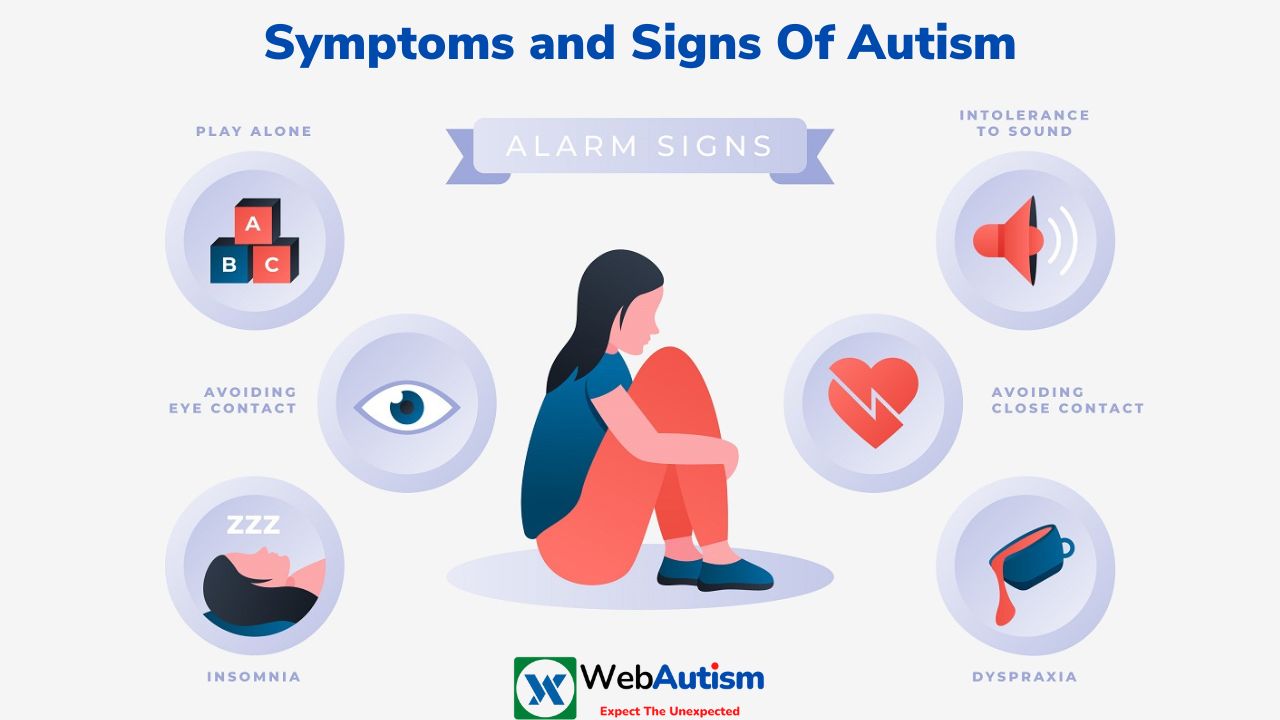
Other Symptoms And Signs Of Autism
Most children with ASD have other related symptoms. These may be
- Delayed language development
- Delayed movement skills
- Delayed cognitive or learning skills
- Hyperactive, impulsive, and/or lack of focus
- Epilepsy or seizure disorder
- Unusual eating and sleeping habits
- Gastrointestinal issues (for example, constipation/Diarrhoea)
- Unusual mood or emotional response
- Anxiety, stress, or excessive worry
- Lack of fear or fear more than expected
Autism Spectrum Disorder (ASD) has broad range of symptoms. It is important to note that children with ASD may not have all of these or beyond these. These are only common symptoms. These symptoms will help you to contact your doctor for detailed assessment, diagnosis, early intervention or starting therapies as per need of the child.
Also Read:- Can Autism Be Cured?
3 Levels of Autism Spectrum Disorder
On the basis of severity of symptoms ASD has 3 levels
Mild Autism
Level 1 autism may be called “Mild Autism” in layman’s language. Children who “need support” and would suffer challenges in daily life, but they can “speak in full sentences”, Level 1 autistic people are inflexible in patterns of behaviours and face difficulty to switch from one activity to the next. They have difficulty in initiating social interactions. They are not fully independent.
Moderate Autism
Level 2 autism is sometimes called “Moderate Autism“. According to the DSM-5 children requiring significant support, everyone around them will easily notice that they’re different. These people are able to speak in simple sentences, and “markedly odd” nonverbal communication (like body language and tone of voice). The same inflexible behaviours will be seen like level 1 Autism, and people with level 2 autism will find it very difficult to cope with changes. Social interactions limited to narrow special interests.
Severe Autism
Level 3 autism would be known as “Severe Autism“. According to the DSM-5, people with level 3 autism require very substantial support, might rarely speak a few words, which are very difficult to understand, and social interaction with non-autistic people is a challenging work. People have “extreme” difficulty in coping with change at this level, and their requirement for repetitive actions and routines disrupted can be painful.
Conclusion
This article explains the symptoms and signs of autism in an easy-to-understand manner. You can watch our youtube videos to know the symptoms of autism in detail. Also you can connect with us on Facebook and Twitter.
If you have any question regarding the symptoms of Autism, then definitely tell by commenting, we will be very happy to help you.
If you liked this article please share it. Thank you so much.

